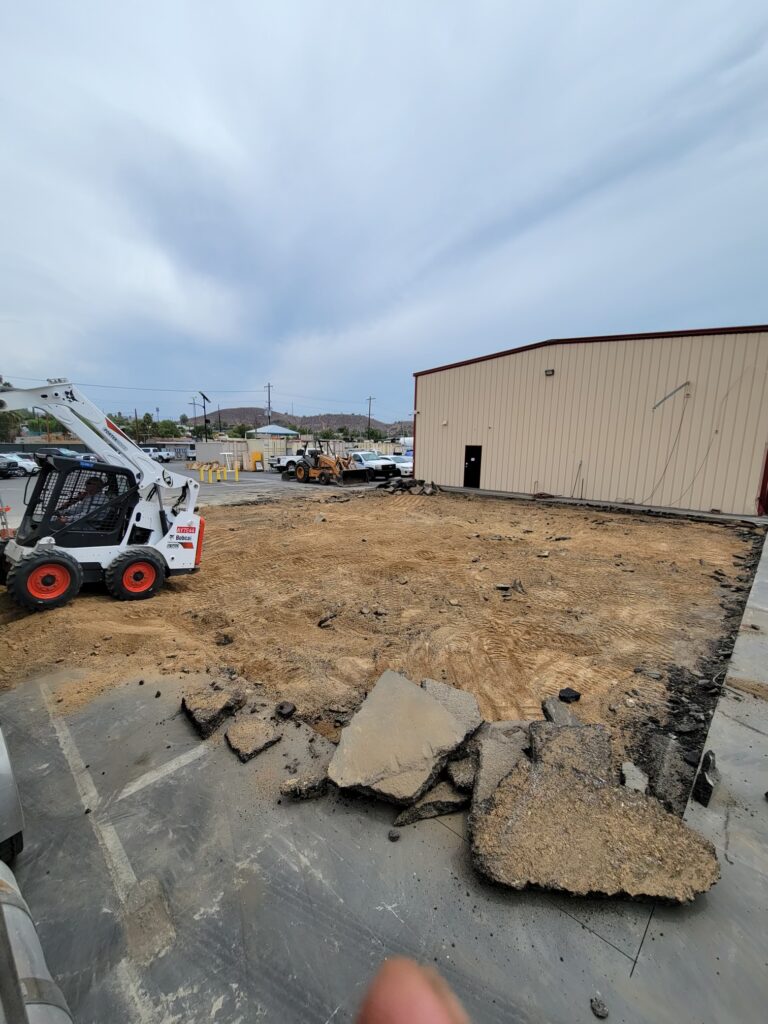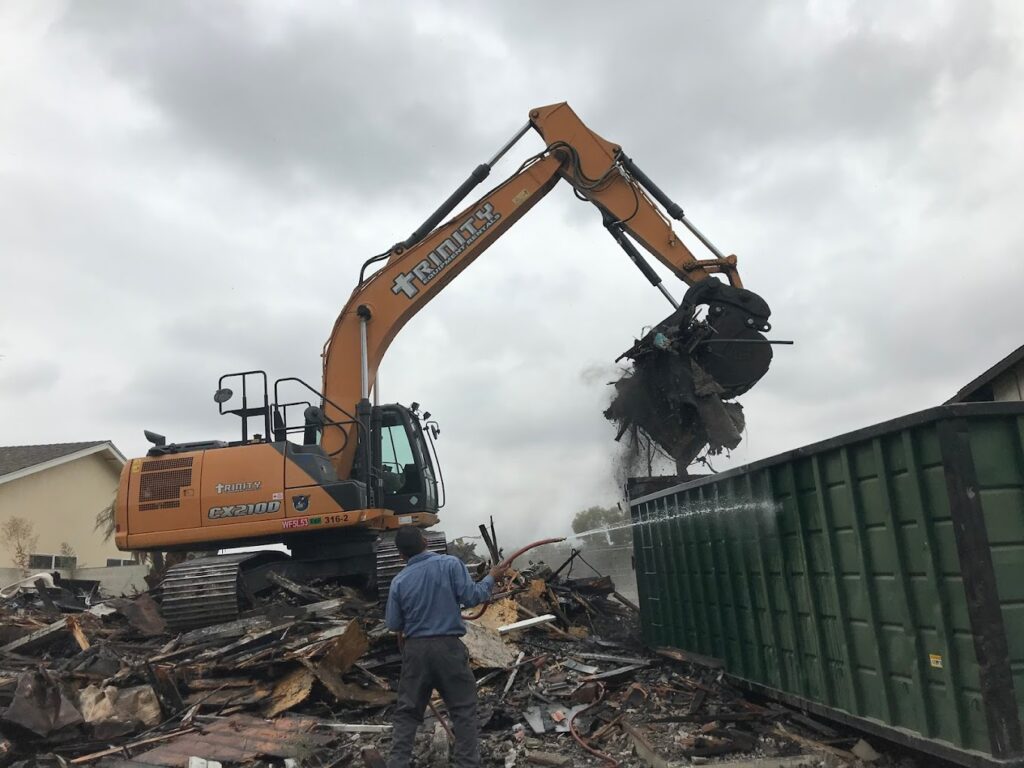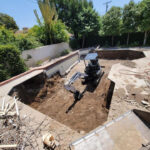When embarking on a property redevelopment project, understanding the costs associated with house demolition is crucial for effective budgeting and planning. Whether you’re clearing land for new construction, addressing structural issues that are beyond repair, or simply seeking a fresh start on your property, demolition represents a significant initial investment. This comprehensive guide examines the various factors that influence demolition costs, helping homeowners make informed decisions about their projects.
Understanding the Basics of House Demolition
House demolition involves more than simply knocking down a structure. The process encompasses a range of activities including site preparation, structural dismantling, debris removal, and site restoration. According to industry experts, professional demolition requires careful planning, appropriate equipment, and adherence to local regulations to ensure safety and environmental compliance.
The national average cost for house demolition typically ranges from $4,000 to $15,000, but these figures can vary dramatically based on numerous factors specific to each property and location. For larger homes or those with complex demolition requirements, costs can exceed $30,000 or more. Understanding what drives these costs can help homeowners prepare financially for their projects.

Key Factors That Influence Demolition Costs
House Size and Structure Type
The square footage of a home directly impacts demolition costs, with larger properties generally requiring more time, labor, and equipment to demolish. According to data from HomeAdvisor, demolition costs typically range from $2 to $17 per square foot, depending on the home’s size and construction type.
Multi-story homes present additional challenges and safety considerations compared to single-story structures, potentially increasing costs by 20-40%. Similarly, homes constructed with reinforced concrete or brick typically cost more to demolish than wood-frame houses due to the greater effort required to break down these materials. As the experts at Earthworks Engineering’s demolition services can confirm, understanding your home’s construction is essential when estimating demolition costs.
Location and Accessibility Factors
Your property’s location significantly impacts demolition costs through varying labor rates, permit fees, and disposal costs across different regions. Urban areas typically have higher labor costs and more stringent regulations than rural locations. Properties in densely populated neighborhoods may require special precautions to protect neighboring structures, potentially adding thousands to the project cost.
Site accessibility also plays a crucial role in determining demolition expenses. Limited access for heavy equipment, narrow driveways, or obstacles like trees and utility lines can complicate the demolition process. Properties with difficult access may require specialized equipment or manual labor, both of which increase costs. Earthworks Engineering’s site preparation services can provide valuable insights on how accessibility might affect your specific project.
Hazardous Materials Remediation
Perhaps the most significant potential cost increase comes from the presence of hazardous materials. Homes built before 1980 often contain asbestos in insulation, floor tiles, or ceiling materials. According to the EPA, professional asbestos remediation must be completed before demolition can proceed, adding $1,000 to $30,000 depending on the extent of contamination.
Lead paint, commonly found in houses built before 1978, requires special handling during demolition. The Department of Housing and Urban Development mandates specific protocols for lead abatement, which can add $8 to $15 per square foot to demolition costs.

Other potential hazards include mold remediation ($500 to $6,000), underground oil tanks ($1,000 to $3,500 for removal), and chemical contamination in the soil. Professional inspection services, like those offered by Earthworks Engineering’s environmental services, can identify these issues early in the planning process, helping homeowners avoid unexpected costs during demolition.
Permitting and Regulatory Considerations
Before any demolition work begins, permits must be obtained from local authorities. These permit costs vary widely by location, typically ranging from $50 to $100 for basic permits in rural areas to $1,000 or more in cities with strict building codes. Some municipalities also require impact studies or neighborhood notifications before approving demolition permits.
Utility disconnection represents another necessary pre-demolition expense. Professional disconnection of electricity, gas, water, and sewer services typically costs between $75 and $300 per utility. Additionally, some local governments require specific erosion control measures or dust suppression techniques during demolition, adding further to the project cost.
Working with experienced professionals familiar with local regulations, such as the team at Earthworks Engineering, can help navigate these requirements efficiently and avoid costly delays or penalties for non-compliance.
Demolition Methods and Their Cost Implications
Traditional Mechanical Demolition
Mechanical demolition using excavators, bulldozers, and wrecking balls remains the most common approach for residential demolition. This method typically costs between $4 and $8 per square foot and is most cost-effective for complete demolitions of standard structures. Equipment rental, operator fees, and fuel costs comprise the bulk of this expense.
For a typical 1,500 square foot home, mechanical demolition might cost $6,000 to $12,000 before accounting for debris removal and additional factors. According to the Construction & Demolition Recycling Association, mechanical demolition generates significant debris—approximately 115 pounds per square foot of construction—which must be factored into overall project costs.
Selective Demolition and Deconstruction
For homeowners concerned with sustainability or salvaging valuable materials, selective demolition or deconstruction offers an alternative to complete mechanical demolition. This labor-intensive process involves carefully dismantling a structure to preserve materials for reuse or recycling.
Deconstruction typically costs 30-50% more than traditional demolition, ranging from $8 to $15 per square foot, due to increased labor requirements. However, tax deductions for donated materials and reduced disposal costs can offset this premium. Organizations like The ReUse People provide resources on tax benefits for material donation.
Earthworks Engineering’s sustainable practices align with this approach, helping homeowners balance environmental concerns with budget considerations.
Debris Removal and Disposal Costs
After the physical demolition, removing and disposing of debris constitutes a significant portion of the total project cost. Disposal fees vary by region and material type, typically ranging from $30 to $120 per ton. For a 1,500 square foot home, debris removal alone can cost $2,000 to $9,000.
Many municipalities impose additional fees for disposing of construction waste, and transportation costs increase with distance to disposal facilities. According to the Solid Waste Association of North America, recycling construction materials can reduce these costs while supporting environmental sustainability.
Some demolition contractors, including those recommended by Earthworks Engineering, include debris removal in their overall project quote, while others charge separately for this service. Understanding how debris management is handled in your contract can prevent unexpected expenses.
Additional Considerations That Impact Total Costs
Site Restoration Requirements
Following demolition, site restoration preparing the land for its next use adds further costs to the project. Basic grading and leveling typically costs $500 to $1,000 for an average lot, while more extensive landscaping or soil remediation can add thousands more.
Some local building departments require specific site stabilization measures to prevent erosion or sedimentation of nearby water bodies. These requirements can add $1,000 to $5,000, depending on the property size and local regulations. The Natural Resources Conservation Service provides guidance on erosion control best practices that might be required in your area.

Seasonal Timing and Market Conditions
Demolition costs fluctuate seasonally and with market conditions. In many regions, demolition costs peak during summer construction seasons and decrease during winter months when contractors have less work. According to construction industry analysts, scheduling demolition during off-peak seasons can save 10-15% on project costs.
Fuel prices significantly impact demolition expenses, as heavy equipment requires substantial fuel. When fuel prices rise, expect demolition quotes to increase accordingly. Similarly, local construction market conditions affect labor availability and rates, with busier markets commanding premium prices for demolition services.
DIY vs. Professional Demolition: Cost Comparison
While some homeowners consider partial DIY demolition to reduce costs, this approach comes with significant limitations and risks. DIY interior demolition might save money for simple projects like removing non-load-bearing walls or fixtures, but structural demolition requires professional expertise and equipment.
Insurance considerations also favor professional demolition; most homeowner insurance policies won’t cover accidents during DIY structural demolition. Additionally, improper handling of potentially hazardous materials can lead to serious health risks and regulatory penalties.
The experts at Earthworks Engineering emphasize that while DIY approaches might seem cost-effective initially, they often result in higher total expenses due to complications, injuries, or compliance issues that arise during the project.
Financing Options for Demolition Projects
For homeowners facing substantial demolition costs, several financing options exist. Construction loans often cover demolition expenses when rebuilding on the same site. These specialized loans typically require detailed project plans and contractor estimates.
Home equity loans or lines of credit represent another common financing approach, using existing property equity to fund demolition. For properties with little existing equity, personal loans or credit cards might be necessary, though these typically carry higher interest rates.
Some municipalities offer special financing programs for demolition related to blight removal or redevelopment initiatives. The Urban Institute provides resources on identifying local financial assistance programs that might apply to your demolition project.
Hidden Costs and Contingency Planning
Experienced demolition professionals recommend budgeting an additional 10-20% for contingencies to address unexpected issues that often arise during demolition projects. Common surprises include:
- Discovering additional hazardous materials during demolition
- Encountering underground structures requiring removal
- Damage to underground utilities not properly marked or documented
- Neighboring property damage requiring repairs
- Weather delays extending project timelines and labor costs
Working with reputable professionals who conduct thorough pre-demolition inspections, like those available through Earthworks Engineering’s consultation services, can help identify potential issues before they become expensive problems.
Making the Most Cost-Effective Decisions for Your Demolition Project
To optimize your demolition budget while ensuring quality work, consider these expert recommendations:
Obtain multiple detailed quotes from licensed, insured demolition contractors with positive references and reviews. Ensure quotes specify exactly what services are included and excluded to enable accurate comparisons.
Consider partial demolition when appropriate—salvaging foundations or certain structural elements can significantly reduce costs for rebuilding projects. Professional structural engineers can advise on which elements might be safely preserved.
Investigate material recycling and donation options to offset disposal costs and potentially qualify for tax deductions. Many contractors partner with recycling facilities to process concrete, metal, and wood from demolition sites.
Schedule demolition during off-peak seasons when contractors have more availability and may offer competitive pricing. Planning demolition several months in advance typically yields better rates than urgent project requests.
Planning for Success
House demolition represents a significant investment in your property’s future potential. While costs vary widely based on the factors discussed, understanding these variables helps homeowners budget appropriately and make informed decisions throughout the demolition process.
For complex demolition projects or situations involving hazardous materials, consulting with demolition specialists and environmental experts provides the most accurate cost estimates and project planning. Professional guidance ensures compliance with regulations while identifying opportunities to optimize project costs.
Ready to move forward with your demolition project? Contact the experts at Earthworks Engineering at 909-845-2591 for a comprehensive site evaluation and detailed cost estimate tailored to your specific property and requirements. Their experienced team can guide you through every step of the demolition process, from initial planning through final site preparation for your next building project.









